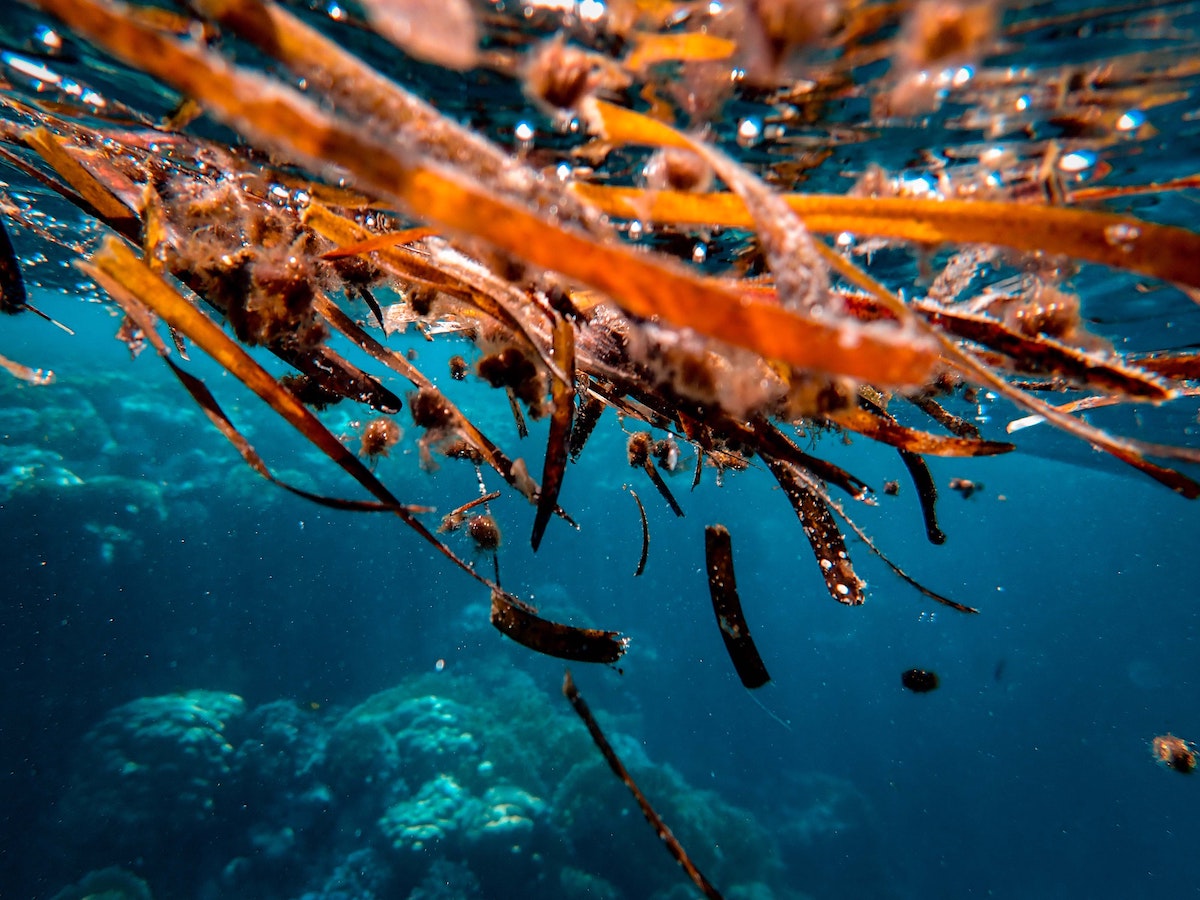When Fionnuala Quin, Founder and CEO of Kelpy, was asked to speak on a panel at this year’s Purpose Conference, she struggled to figure out what exactly her singular purpose was.
“Everyone advises, ‘Oh, just focus on one thing – one goal, one mission, one purpose’,” Quin says. “But my mind doesn’t work that way. I’ve got a holistic-ecosystem mindset. And yes, it has been challenging, but I’ve decided to have a lot of purposes.”
The seeds of her business and all of her purposes – really an amalgamation of her varied life experiences – were planted in childhood.
Growing up in a rock lobster fishing town in Western Australia, Quin watched her entrepreneur-fisherman father become increasingly concerned about the state of the local industry and its declining stocks.
“He was decades and decades ahead of his time,” she reflects. “He would say, ‘We need to be rewilding the ocean. We need to be farming more sustainably and using endemic species’.”
Once, he brought back sea pens from Norway, installing them in the bay near their home. He built a hatchery and even lobbied the government to spend on regenerative aquaculture research. “Ultimately, back in the 90s, people didn’t see the need for it all,” Quin says. “They thought there were plenty of fish in the sea.”
Inspiration strikes
Many years later, in the midst of the COVID-19 pandemic lockdowns, and with her work disappearing overnight, she and her family left Sydney to get their bearings in a small coastal community that to Quin felt like her childhood home.
It was there that it hit her just how much her newly adopted town – along with the rest of Australia and the world – was hurting from ever-intensifying natural disasters, COVID-19 restrictions and industries in ruin.
Although happy to be back by the sea, Quin recalls an enormous amount of plastic garbage washing up on the beach that she and her neighbors would clean up. The pollution was almost a symbol of the waves of hopelessness felt everywhere at that time – it just kept coming.
“My brain wanted to wrap up all these solutions into one and create a regenerative industry that’s localized, that solves the plastic crisis, that has roots in the ancient practices of the First Nations, and also empowers women and underserved communities.”
“It was such a dark time. Such a reckoning in terms of humanity and the environment,” she says. “I’ve seen what the end of industry does. The fast decline of the local community, the youth giving up hope and all kinds of social issues spiraling out as a result.”
It was while watching 2040 with her four daughters, a Damon Gameau documentary about climate tech innovation, that an idea popped up. The film talked about kelp and its different uses, from food to cosmetics. “I became a little bit obsessed with seaweed when I realized nobody was taking on hard plastics,” Quin says.
In early 2021, she entered a green business competition with a concept for a seaweed bioplastic startup. She pulled from her aquaculture roots, experiences traveling the world and community-development background.
“My brain wanted to wrap up all these solutions into one and create a regenerative industry that’s localized, that solves the plastic crisis, that has roots in the ancient practices of the First Nations, and also empowers women and underserved communities,” she says.
Her business plan was accepted right away.

It all comes together
While her purposes, plural, resemble a mind map of sorts, they all have an amazingly elegant point of convergence. Quin’s fledgling business, Kelpy, has developed a range of seaweed-based polymers that can replace the most commonly used plastics on the planet.
It all comes together like this: The nations she wants to help are also the most climate-affected places on earth, Quin explains. And now, due to devastated fishing industries and post-pandemic tourism slumps, their economies have been all but destroyed.
They’re the nations that have the most plastic pollution and are also the manufacturers of 90 percent of the world’s plastics.
“That’s all awful,” she says. “But they’re also the world’s biggest seaweed growers. They have all the plastic-making infrastructure and a workforce in place – plus they have the will to galvanize their communities.”
“We can take these pellets to a plastic manufacturer and have them use their same equipment, their same molds, and we can create plastic-replacement products.”
As a woman and the mother of four daughters, always attuned to the challenges women face, it’s clear to Quin where most of that galvanization comes from. “In many of the countries we’re now partnering with, it’s up to 90 percent female seaweed farmers,” she says.
“As fishing has declined, the women have stepped up and become the breadwinners. And because of the way women look after their communities and spend on education and housing, the impact is enormous.”
Focusing for now on eradicating single-use plastics – the ones piling up in landfills and clogging the ocean – Kelpy transforms seaweed into little pellets whose look, feel and size is exactly the same as regular plastic resin.
“We’ve designed a drop-in solution,” Quin says. “We can take these pellets to a plastic manufacturer and have them use their same equipment, their same molds, and we can create plastic-replacement products.”
A future of endless opportunity
These products are 100 percent biodegradable and, depending on how substantial the resulting form is, compostable at home. But all Kelpy material marine degrades – think an apple core breaking down from the outside in – and won’t create microplastics.
“Whether it’s something that requires a shelf life of two years or a few weeks, polymer scientists design in that biodegradability timeline intentionally,” Quin says.
“For instance, if we’re looking at films to grow strawberries, we want that to break down in a matter of weeks and go harmlessly into the soil. If it’s a shampoo bottle, we need it to survive on the supermarket shelf and then in your shower for the lifetime of the product.”
The seaweeds used to create the pellets also have a place in Quin’s mind map of world problems to solve. The company is very strategic about which varieties are trialed, and it’s especially noteworthy that Kelpy has seen incredible outcomes with lower-grade and invasive species. Even waste seaweeds, byproducts of other industries and destined for landfills, fit the bill.
“We’ve been very strict in adhering to our morals and our integrity. We’re really focused on a clean, ethical and responsible process throughout.”
“We’ve been very strict in adhering to our morals and our integrity. We’re really focused on a clean, ethical and responsible process throughout,” Quin says. “I think it’s paying off because the right businesses and the right people want to support us now.”
This year, Kelpy has been selectively piloting with commercial brands – Unilever and Colgate-Palmolive, cosmetic and eyewear brands, and even medtech in very specific cases.
They’re raising capital for a new lab and a rapid-prototyping facility. There are meetings with the Queensland and Tasmanian governments planned for the coming months. An international presence is on the horizon.
The company’s riding an incredible wave of momentum into this year’s Purpose Conference, which Quin describes as an “ecosystem of collaboration”. Beyond excited to get there, she says, she anticipates being able to uplift others by sharing her Kelpy story – and all of her purposes.
“When you’ve got that many people who are driven to do positive things, it creates endless synergies,” she says.
This year’s Purpose Conference will be held at Sydney’s iconic Carriageworks from 8–9 November. Get your tickets here.







